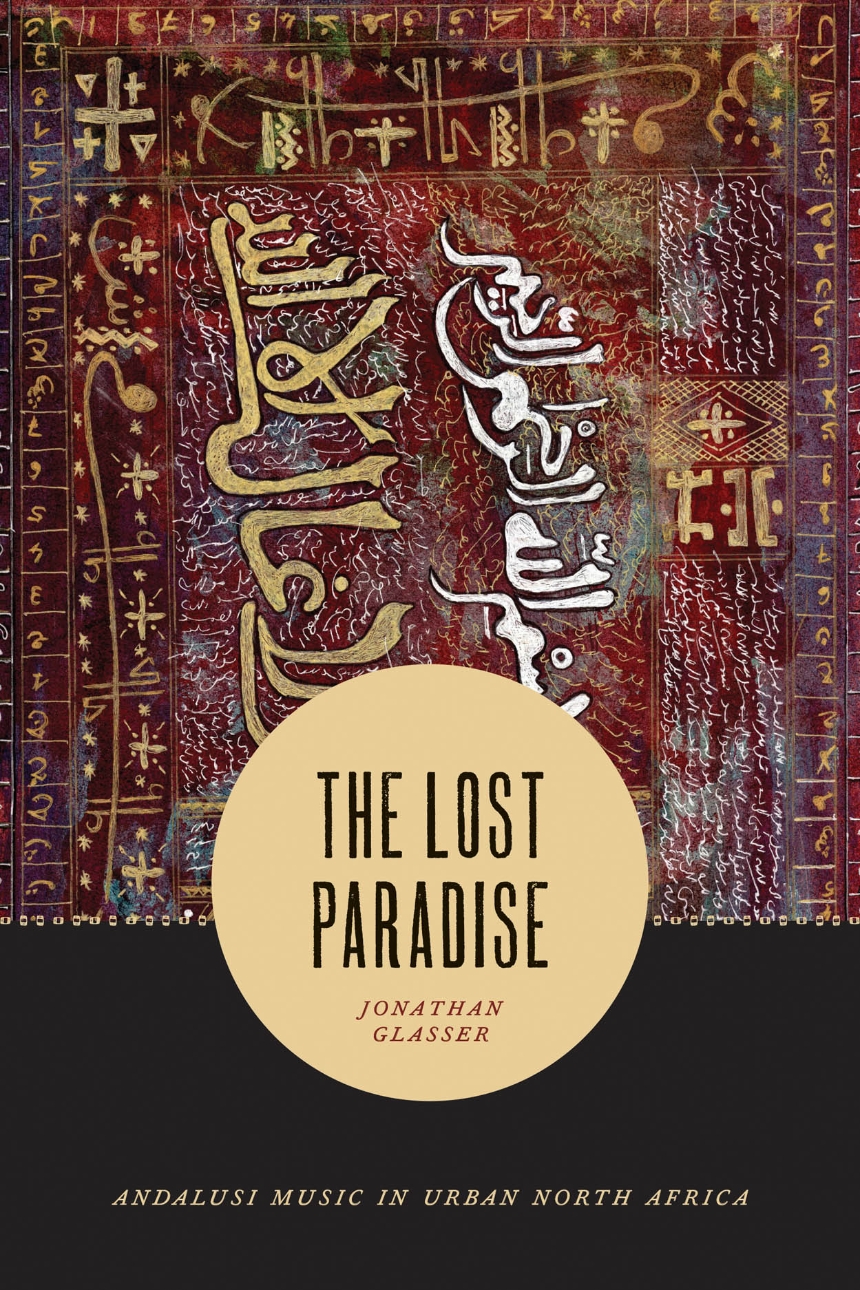The Lost Paradise
Andalusi Music in Urban North Africa
For more than a century, urban North Africans have sought to protect and revive Andalusi music, a prestigious Arabic-language performance tradition said to originate in the “lost paradise” of medieval Islamic Spain. Yet despite the Andalusi repertoire’s enshrinement as the national classical music of postcolonial North Africa, its devotees continue to describe it as being in danger of disappearance. In The Lost Paradise, Jonathan Glasser explores the close connection between the paradox of patrimony and the questions of embodiment, genealogy, secrecy, and social class that have long been central to Andalusi musical practice.
Through a historical and ethnographic account of the Andalusi music of Algiers, Tlemcen, and their Algerian and Moroccan borderlands since the end of the nineteenth century, Glasser shows how anxiety about Andalusi music’s disappearance has emerged from within the practice itself and come to be central to its ethos. The result is a sophisticated examination of musical survival and transformation that is also a meditation on temporality, labor, colonialism and nationalism, and the relationship of the living to the dead.
Through a historical and ethnographic account of the Andalusi music of Algiers, Tlemcen, and their Algerian and Moroccan borderlands since the end of the nineteenth century, Glasser shows how anxiety about Andalusi music’s disappearance has emerged from within the practice itself and come to be central to its ethos. The result is a sophisticated examination of musical survival and transformation that is also a meditation on temporality, labor, colonialism and nationalism, and the relationship of the living to the dead.
352 pages | 9 halftones, 1 line drawing | 6 x 9 | © 2016
Chicago Studies in Ethnomusicology
Anthropology: Cultural and Social Anthropology
History: African History
Music: Ethnomusicology
Reviews
Table of Contents
List of Figures
Acknowledgments
Note on Transliteration
Introduction
Part I The People of al-Andalus
Prologue: An istikhbār
1 An Andalusi Archipelago
2 The Shaykh and the Mūlū‘
3 Andalusi Music as Genre
Part II Revival
Prologue: A Photograph
4 Ambiguous Revivals
5 Texts, Authority, and Possession
6 The Associative Movement
7 The Politics of Patrimony
Conclusion: The Lost
Notes
Bibliography
Index
Acknowledgments
Note on Transliteration
Introduction
Part I The People of al-Andalus
Prologue: An istikhbār
1 An Andalusi Archipelago
2 The Shaykh and the Mūlū‘
3 Andalusi Music as Genre
Part II Revival
Prologue: A Photograph
4 Ambiguous Revivals
5 Texts, Authority, and Possession
6 The Associative Movement
7 The Politics of Patrimony
Conclusion: The Lost
Notes
Bibliography
Index
Awards
American Institute for Maghrib Studies: L. Carl Brown AIMS Book Prize in North African Studies
Won
